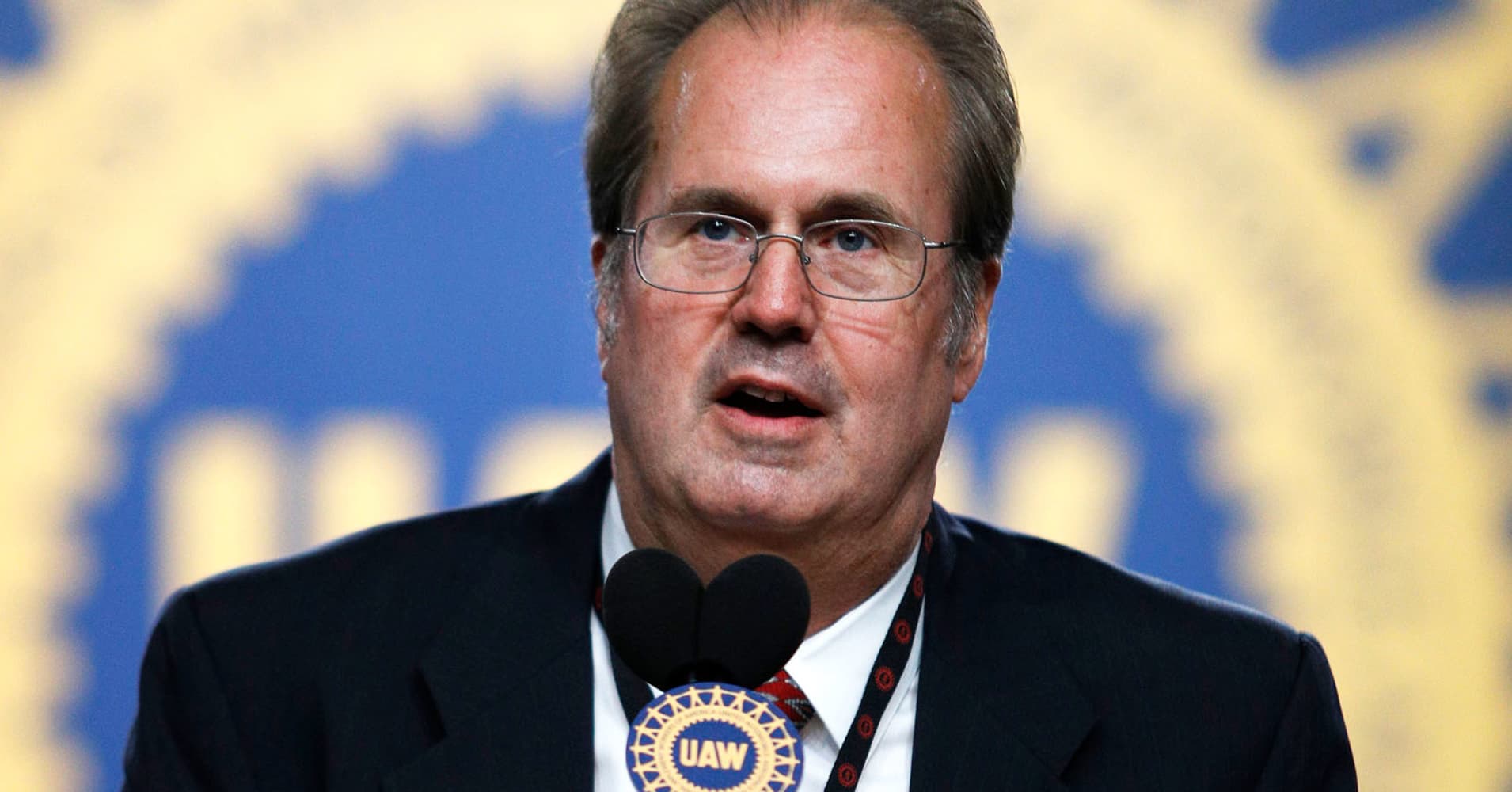The United Auto Workers union said General Motors‘ decision to idle plants in the U.S. and Canada shows the new trade deal between the United States, Canada and Mexico is not strong enough to stop the flow of jobs across the Mexican border.
GM is “thumbing its nose” at the trade deal, commonly referred to as the new NAFTA, the United Auto Workers union said Friday. The U.S.-Mexico-Canada Agreement is meant to replace the 24-year-old North American Free Trade Agreement, which President Donald Trump has repeatedly denounced as a bad deal for Americans.
“We were hopeful that this new agreement would rein in the corporate greed that has bled manufacturing in the United States,” said UAW President Gary Jones. “Unfortunately, as GM’s idling of plants in Ohio, Michigan and Maryland this week showed – the ‘New’ NAFTA, as it stands now, is not strong enough to protect American workers.”
GM, which announced Monday plans to cut 14,000 jobs as part of a massive restructuring, didn’t immediately respond for comment.
But automaker Ford issued its own statement on the signing of the deal.
Joe Hinrichs, executive vice president and president of global operations for Ford, called it an “important step towards achieving free and fair trade in North America” that will help boost sales and support manufacturing jobs.
“To achieve the full potential of the trade agreement and to ensure ratification, the elimination of tariffs on steel and aluminum will be critical and we will continue to work with all stakeholders on this important issue,” Hinrichs said.
The future looks bleak through the eyes of the workers at the factories GM plans to idle, the UAW said. The new measure has failed to stop the flow of work from the U.S. to Mexico where labor is cheaper because workers are exploited, he said.
“Corporations, like GM, have revealed time and time again that they will continue to play by their own rules at the expense of workers, even after raking in record profits,” Jones said. “Our elected leaders owe it to working families in the United States to go back to the table and make this stronger, tighter and enforceable.”

Leave a Reply
You must be logged in to post a comment.